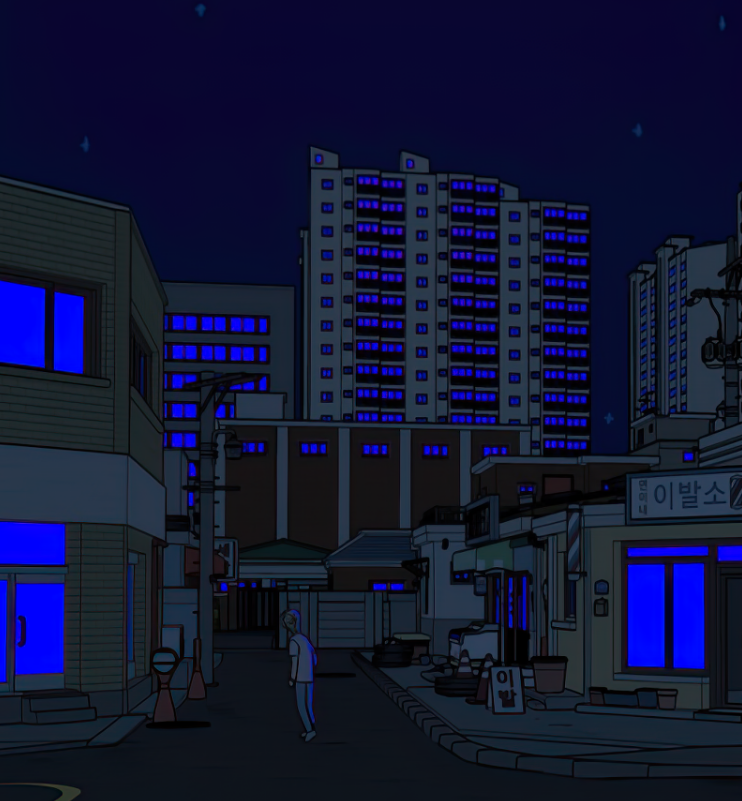favorites & other beloved media
Here is where I wax poetic about media that has impacted me/love/think about a lot etc. It's been a while since I actually consumed some of
these which is why some will have more thorough write-ups than others. I'll get them all to a point where I feel like I've done them due
diligence eventually. To be honest, I think I put too much thought into the distinction between what's a fave and what's an honorable mention
when it might not be that deep. Sometimes an honorable mention is sooo good, but just misses enough of a mark that I can't wholeheartedly call
it a fave. Other times, it will gain a fave status because I've warmed up to it. It can also just be about the vibes. This is also why rating
things is such a headache. It's literally not that serious so for all intents and purposes, treat this as a goated rec list because I have
banger taste.
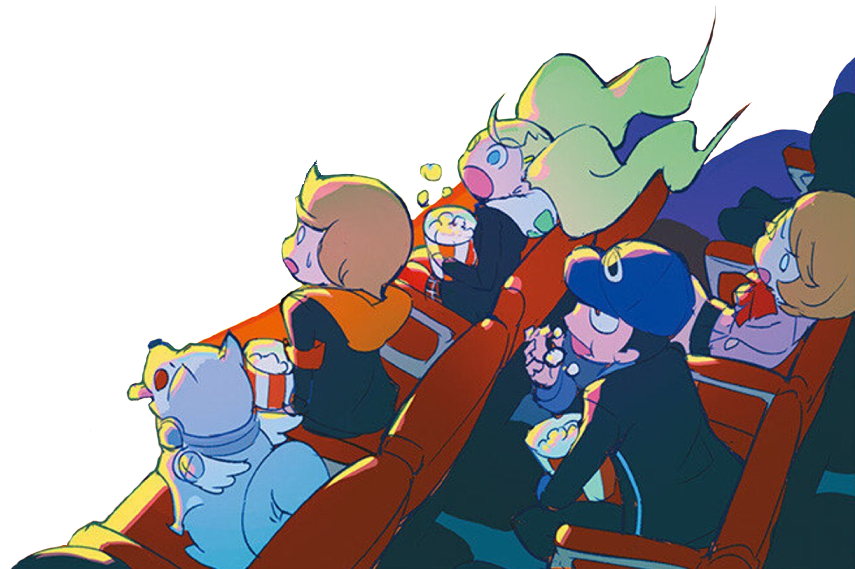
fruits basket
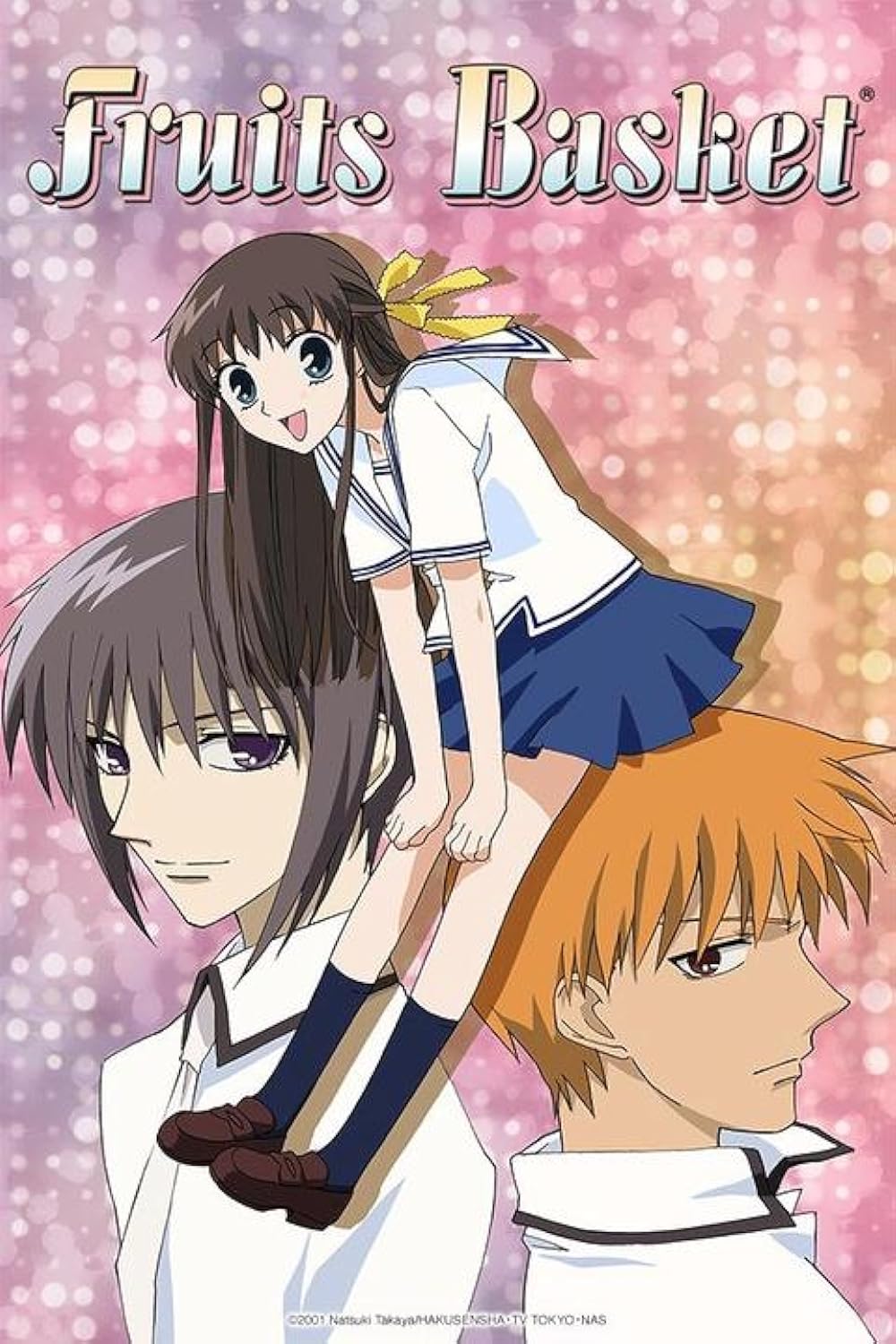
category: anime, manga
created by: Natsuki Takaya
Fruits Basket was the first anime I watched at the ripe age of 11/12 back when it was still on Netflix, which had to be part of the reason why
I was so captivated by it. Oh the nostalgia factor of 2001 Fruits Basket…its ost, older animation, and english dub. I find I still have a vivid
mental image of certain scenes like of Shigure laughing at Tohru with an arrow pointing at him in the first episode or of the various flashbacks
Tohru has with her mom or of Tohru throwing up in the forest in the last episode lmao. So much of ‘01 ver’s charm comes from its ost. The easy,
dream-like soundtracks function quite well for my own nostalgia, but also for the characters reflecting on their own pasts, joys, tragedies and
all, everything happening simply, but unfathomably. The lighter tracks promise a better future…even if a lot of the cast can’t quite imagine what
that looks like, they can still gain strength from the small, pleasant moments found in their daily life.
I guess what compelled me the first time was that despite the scale of tragedy the characters faced, the genre was still undoubtedly slice of life
so the main trio had to go through motions of school life with the rest of the cast popping up here and there. That doesn’t make them well-adjusted
to normal life though and that’s what made being introduced to the cast, having first impressions, then learning about them fun. Ensemble casts my beloved.
Being into something long enough is always amusing because how you interact with it changes too, so I’ll be referring to a child me’s feelings and
then my own now. Child me was very much swept up with the drama that associated the main cast and the circumstances of the curse. I liked Kyo
in the typical angsty Shoujo boy fashion and I liked Tohru because she was Tohru. I remember being so sad about Hatori and Momiji's tragic backstories.
I liked seeing the tension and moves played out between certain members of the cast.
It was when I reread Furuba/watched the reboot in 2019/2020 when I really understood the heaviness of the story. Our main cast was essentially bound to stay
with their abuser forever, within an inner clan that upholds several oppressive structures. The curse, stemming from a lighthearted tale of
of god inviting the zodiac animals to the banquet so they wouldn't be lonely, becomes harrowing in real life. There's a truth here: for many families,
abuse is painful, but the lack of support from being alone is even worse. It's fascinating seeing the various tragedies and forms abuse can take within
a larger clan structure, but also among smaller family units especially considering the reality that some do indeed have it better than others.
Ultimately, each zodiac member finds a different way to live. We, alongside Tohru, get to parse through their different viewpoints and dynamics with each other.
I have a greater appreciation and fondness for the main trio of characters. It's hardly easy to live. Not for Yuki who has had his past stripped away
from him or Kyo who has his future barred away or for Tohru whose circumstances make the ownership of her own past and future blurry. And yet, as the
days and seasons slowly pass by, they are able to confront the truth of their situations, their identities and the life ahead of them.
I think Tohru is a character that can rub the wrong way for many and I get that (she's an emotional Nice Girl who can get pushed around and
is perhaps not minding her business). It doesn't help that her main point of growth as a character is like. hey maybe she should take care of herself
and not work too much. It's something I've seen several times with female characters and it's just...a bit boring if not made better with depth.
Tohru is a character that I think I caught at the right time. Just a bit later and I might have even disliked her. I think criticisms of her can be
really valid, but my affection for is a decent part of why I like the series so I'm talking about it here. Tohru's relationship with her girl best
friends (Arisa and Hanajima) do so so much for her. I love their friendship together and I love that it cements all three of them, including Tohru,
as being weird as hell. The nice girl-creepy girl-rough around the edges girl...they were kinda the blueprint! Making some of her closest relationships
with women keeps her from being like...girl who primarily emotionally supports men. Her backstory with them are a highlight for me and it helps characterize
her as someone who helps other people because she doesn't want to be alone. There's a desperation there and I truly think the emptiness of Tohru's life
can be felt throughout the story. Tohru is not someone who just gives. She's not even someone who really really saves any of the Sohmas either.
The save themselves. I enjoy her as a character that presents the value in having a supportive figure. Sounds simple, but after witnessing an
industry dedicated towards self-growth and self-help from an individualistic standpoint...at some point! you have to admit people can only grow
with the support of others! There's a reason things started changing for the Sohma family after Tohru came in. The simple acts that let another
person know you support them and are on their side can be radically life-changing.
And that's a lot of what Fruits Basket is. Characters coming to understand and support each other in their daily lives and suddenly, getting from
point A to point B...getting closer to the life you want for yourself...is a little less impossible in such a harsh environment.
I still find it very interesting how certain character stories do or don't appeal to me as much now as I'm older.
Certain characters like Hatori and Momiji were still enjoyable, but the kind of melodrama offered from a lover or a mother whose memories were wiped
appealed more to a younger me...Now, I find myself really enjoying characters like Yuki (who is my favorite character in the series and of all time to
be honest), Kakeru and Machi, Kagura, Rin etc. These are characters that were only in my grasp after accumulating life experience I guess. Yuki's
journey is really emblematic of what I like about Fruits Basket as a whole. His character development is easily the best the series has to offer.
I could speak a lot on his character alone, but maybe that's better left in a separate post somewhere else on this site. Regarding romantic
relationships, I liked Kyo and Tohru in the truer? sense back then. Now, they are (said affectionately) cringe straights that uhh have their moments
but they're cute overall I suppose LOL. Yuki and Machi were cute then and they're still cute now. I just think Yuki reads as gay now.
I guess, basically, a part of what makes Fruits Basket feel special-er is that it's a story I interact with differently each read.
Fruits Basket's highs are high and lows are low. I can't not acknowledge its flaws. It's reflective of the time period it was made in and it's a shame
that it has to feature some tasteless jokes and relationships and be really painfully heteronormative. Nonetheless, I think there's some real heart to
its themes about abuse and living a better life. Its cast of strong personalities continues to charm me.
aloners
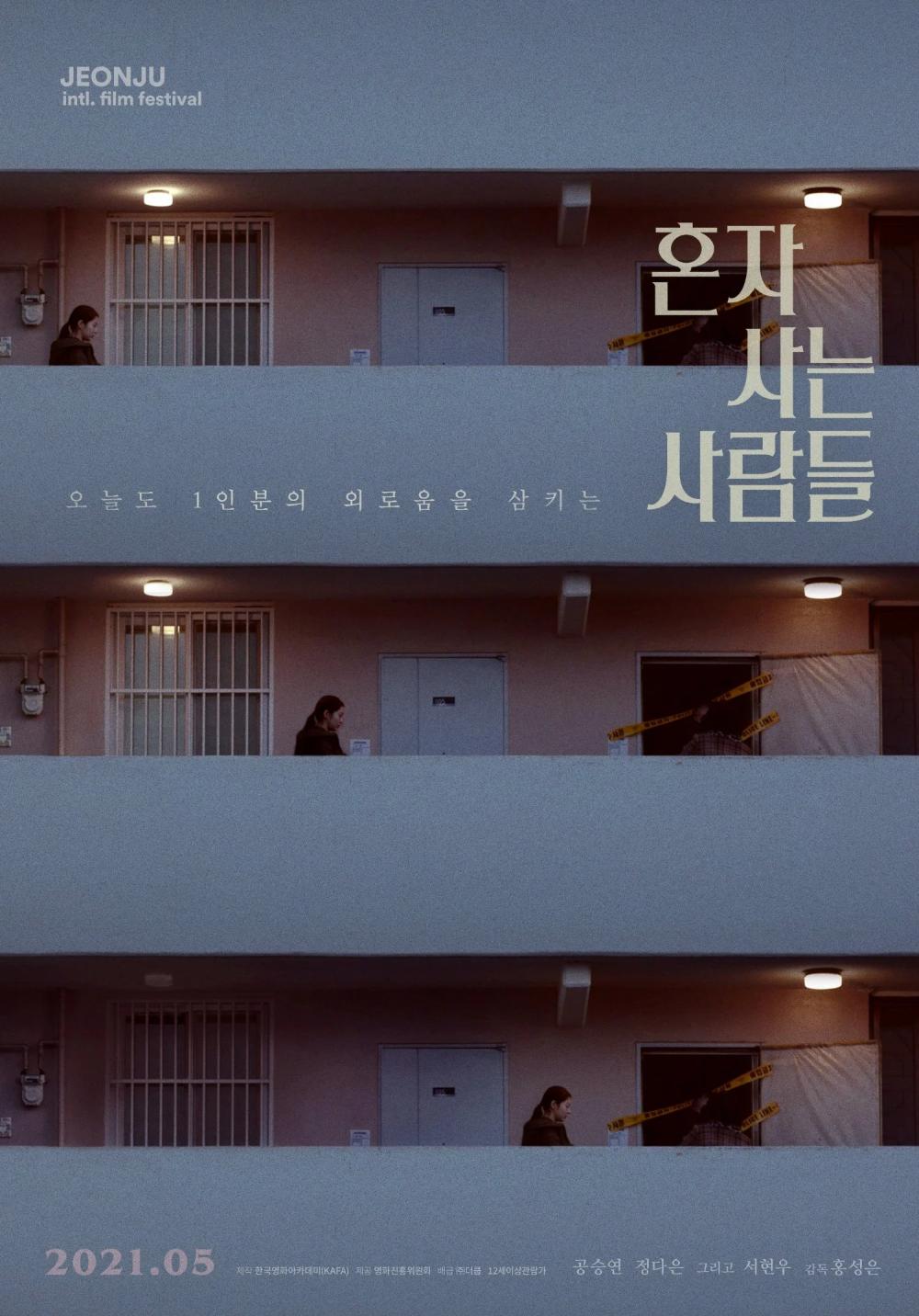
category: film
directed & screenwritten by: Hong Sung Eun
The story follows Jina, the top employee at a credit card company's call center, after she finds out about the death of her neighbor who she often came across, but rarely spoke to. The police reveal that he had already been dead a few days before anyone came to know or suspect anything. Nonetheless, Jina continues with her life. She reluctantly trains the new girl who fumbles and is awkward and only seems to obstruct her solitary lifestyle, eager for connection. She watches her father through an app that connects to the camera in her childhood phone, tracking the movements he makes following the death of his wife and her mother. She comes back home alone, eats alone, watches things alone. In a slow and maddening manner, Jina's way of life starts to crack and crumble completely.
It's a wonderfully haunting film and one that has stuck with me because of its philosophy. To meet someone at all in this big, wide world is a heavy thing. So many circumstances beyond your knowledge aligned for it to be so and on top of that, you have to will for something to come of this relationship, whether it is your father, neighbor or the new girl you're training at work. These connections matter because once they stop, the grief is irrationally real and pressing. The aftermath consists of the distinct knowledge of how frail and human everyone around you is. It's all temporary. Aloners doesn't tell you to veer into the other extreme, to suddenly be social and put your all into every relationship and set aside any previous history. It simply shows you the meaning behind proper goodbyes, treasuring who was there in whatever capacity. I think about it often as my environments and set of faces before me change. None of it can be dismissed lightly.
my liberation notes
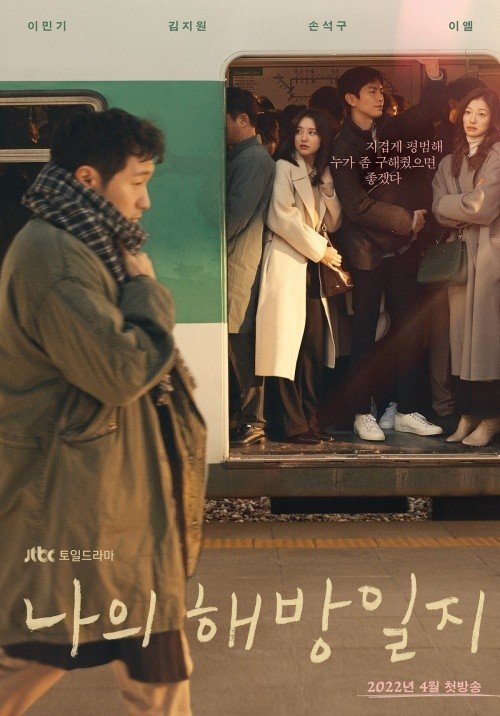
category: tv (drama)
directed by: Kim Seok Yoon
screenwritten by: Park Hae Young
My Liberation Notes most definitely caught me at the right time back when it first aired in 2022. I watched it
weekly and I found comfort in it being a story that seemed to tell you everything won’t necessarily get better.
It might look different, but it won’t exactly feel less punishing. It’s still worth living anyways. For the small
moments where things seem to make sense, when you can breathe easier, when one thing goes your way, when a rare
surprise visits you. When I rewatched the show in 2024, I found it extremely comforting once again, spending time
with each of our three main characters persisting in their unceasing, unsatisfactory, dreary lives. You begin to
constantly wonder if this trial of the day will be a character’s last straw, if they can conjure the strength to
keep going forward. You, alongside the characters, know this can’t continue. This is the core of My Liberation Notes.
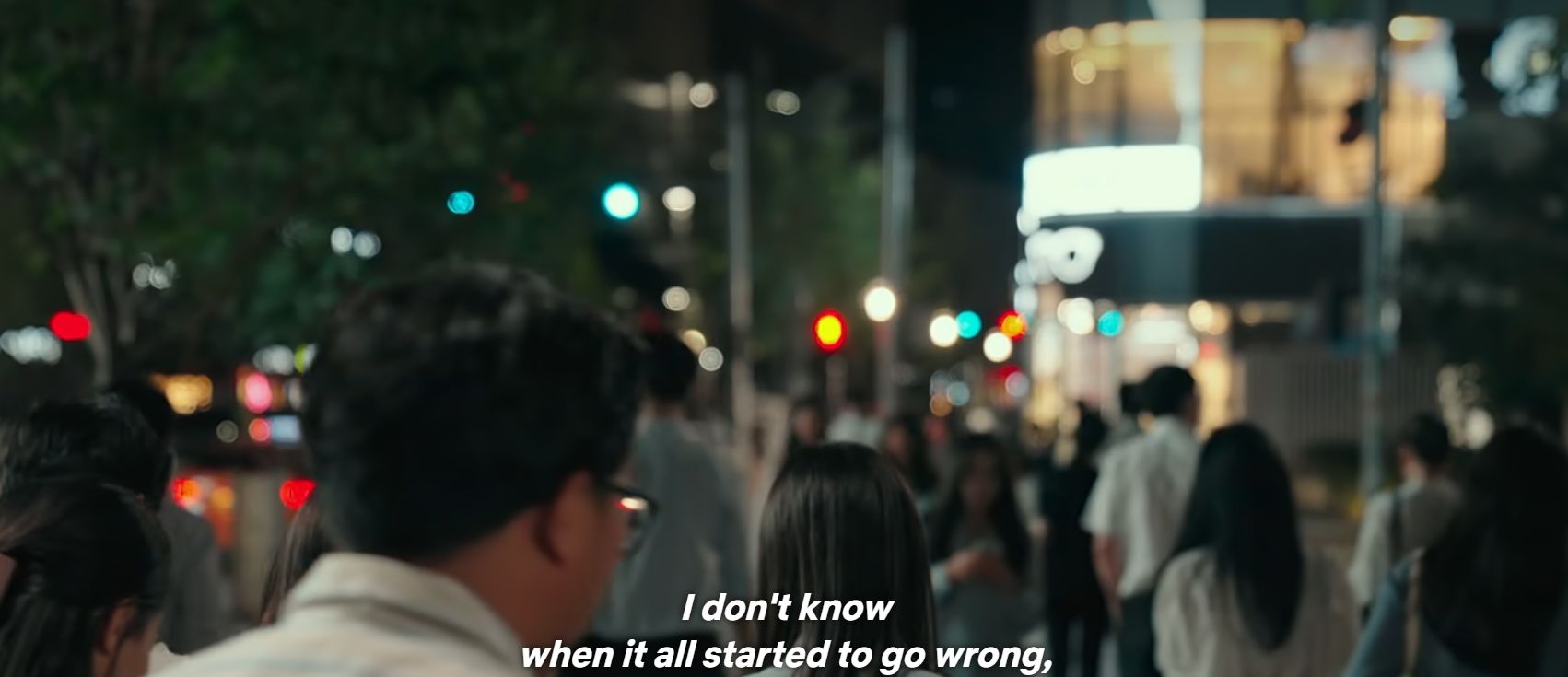
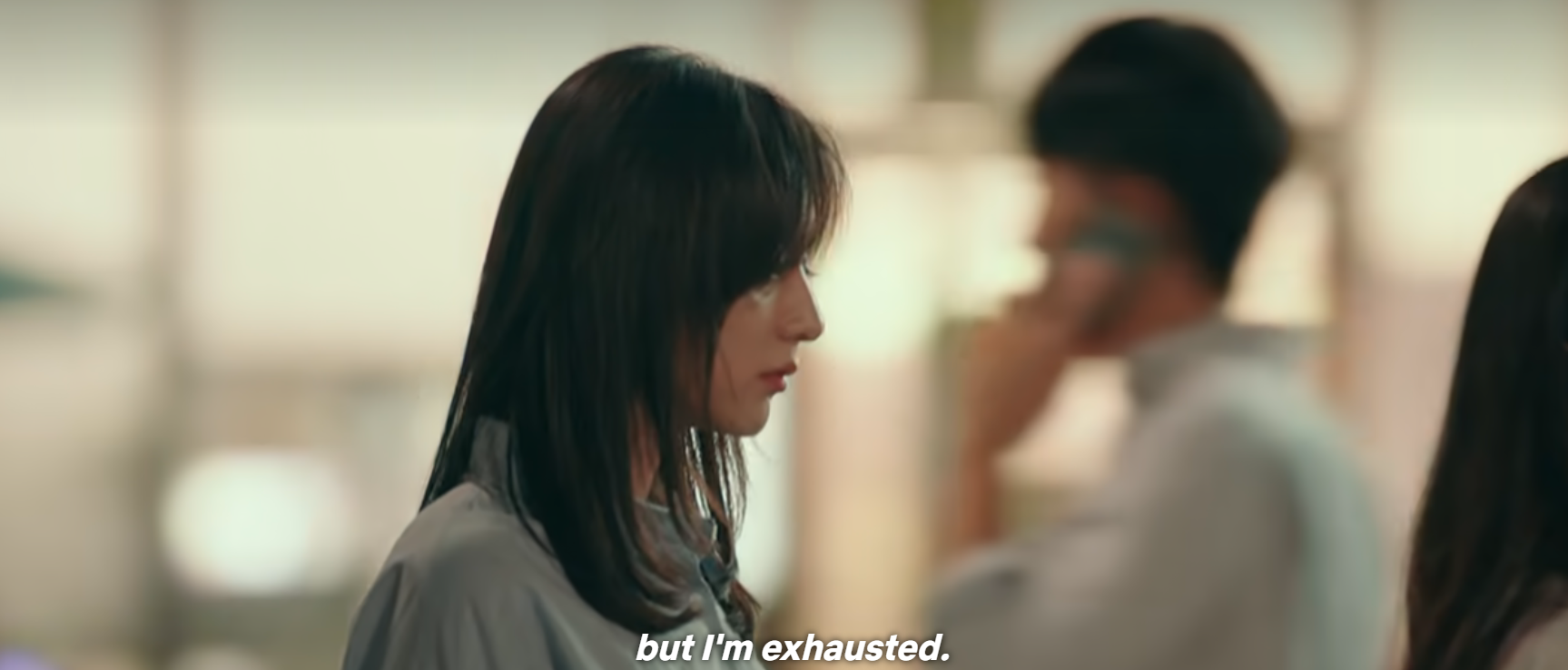
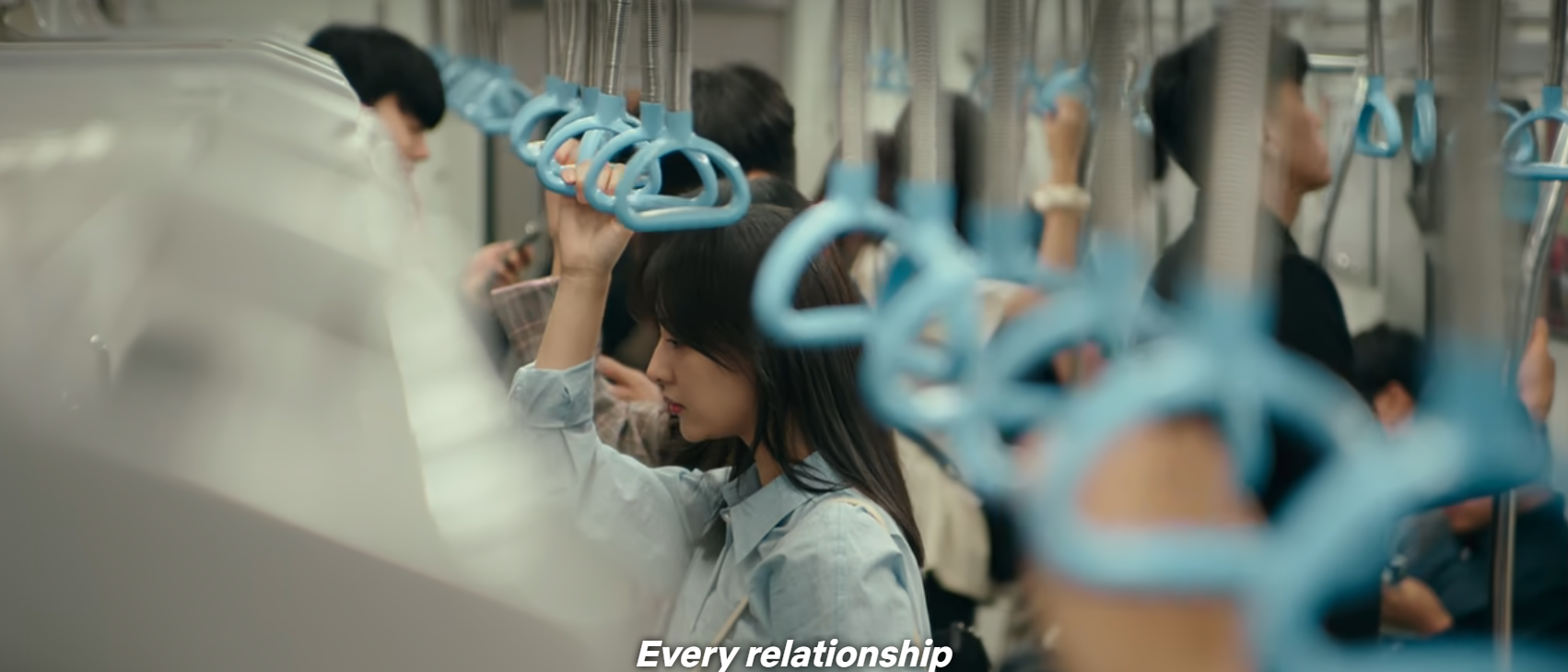
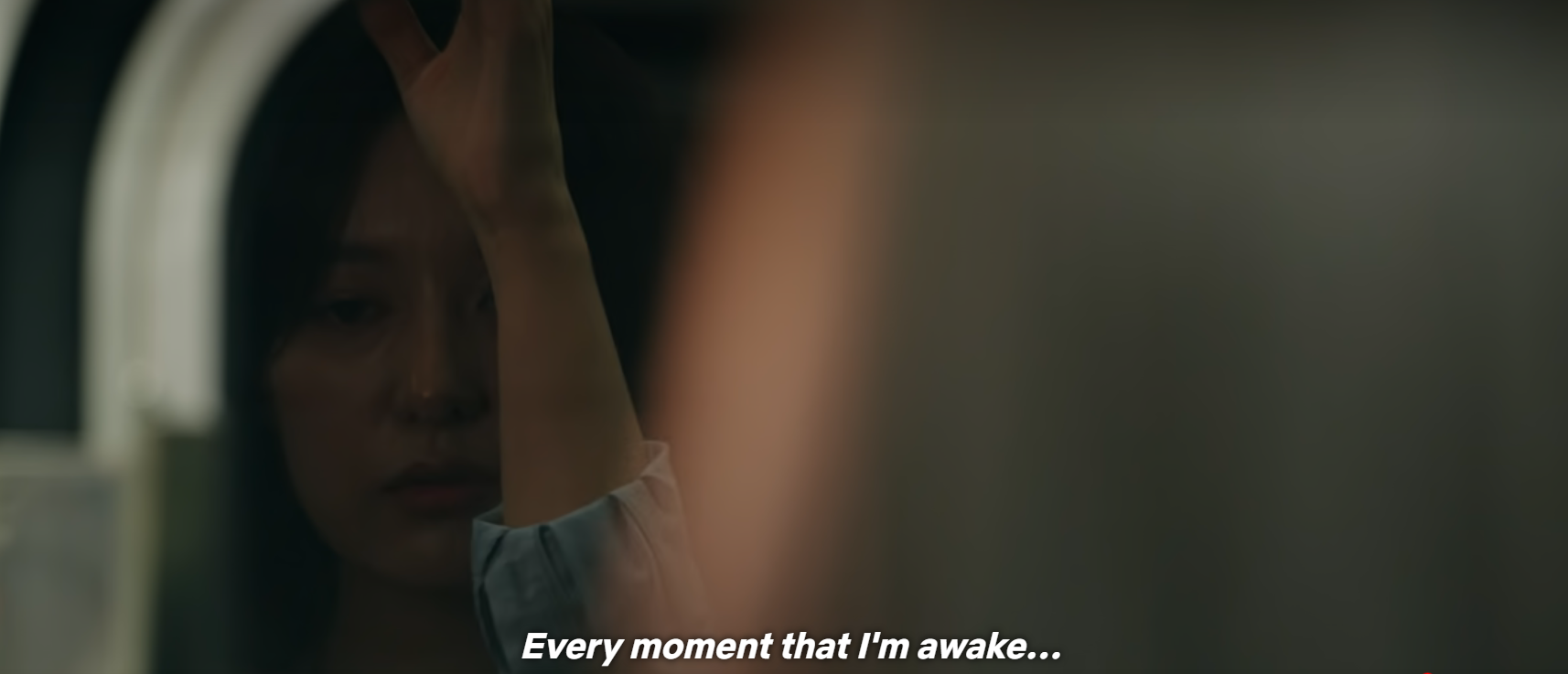
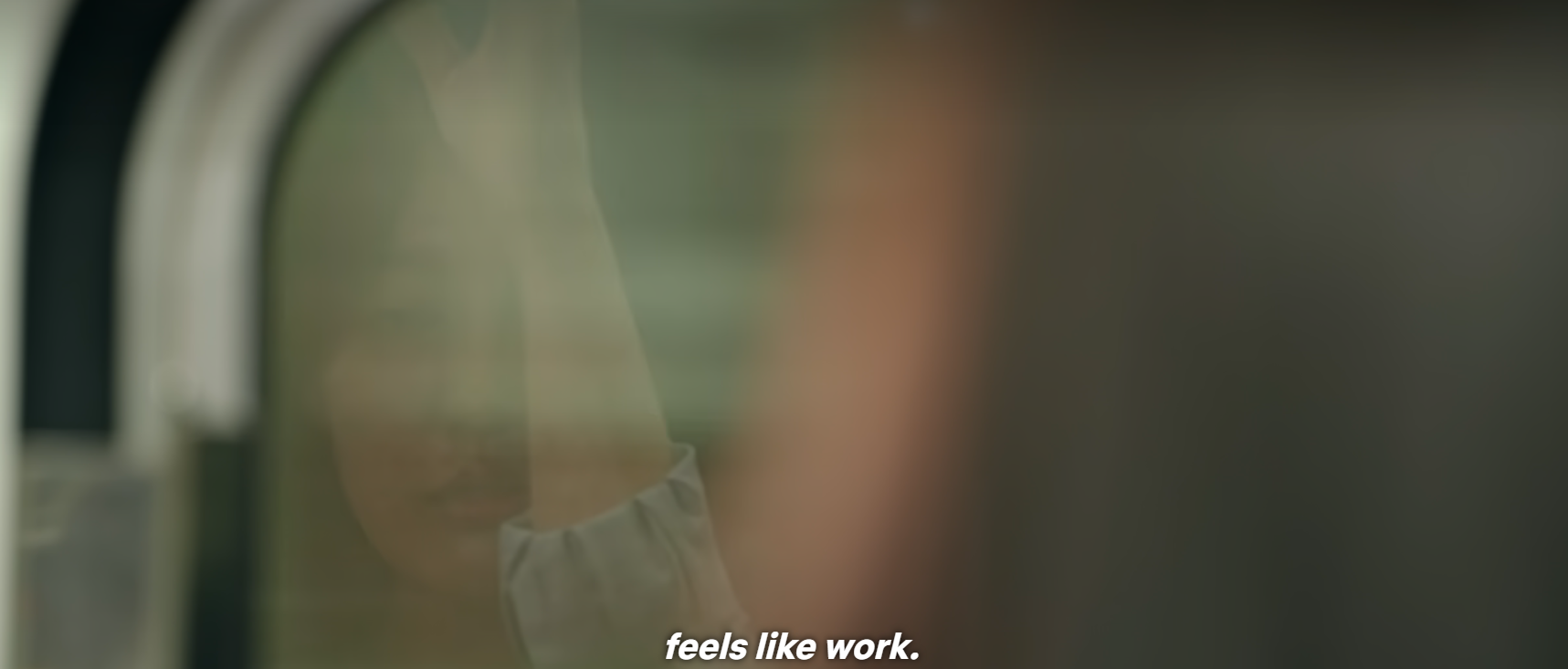
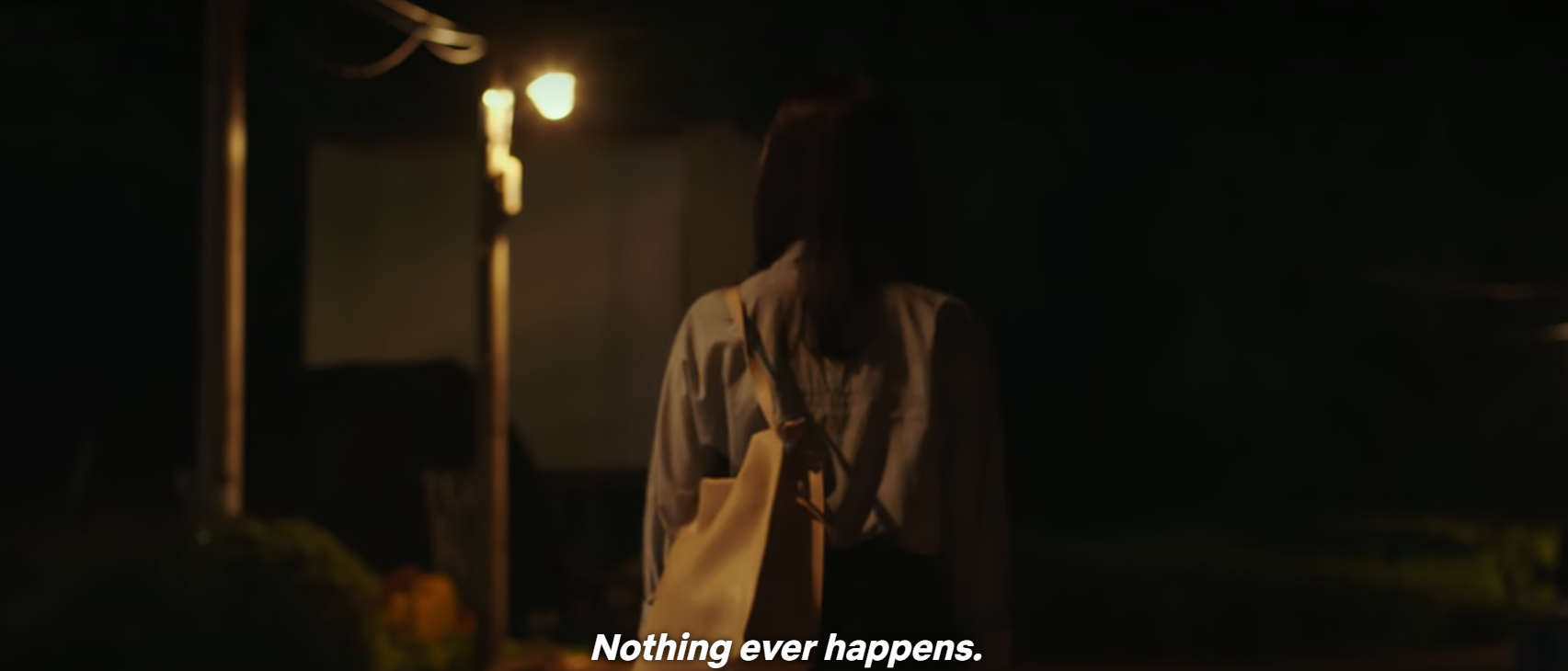
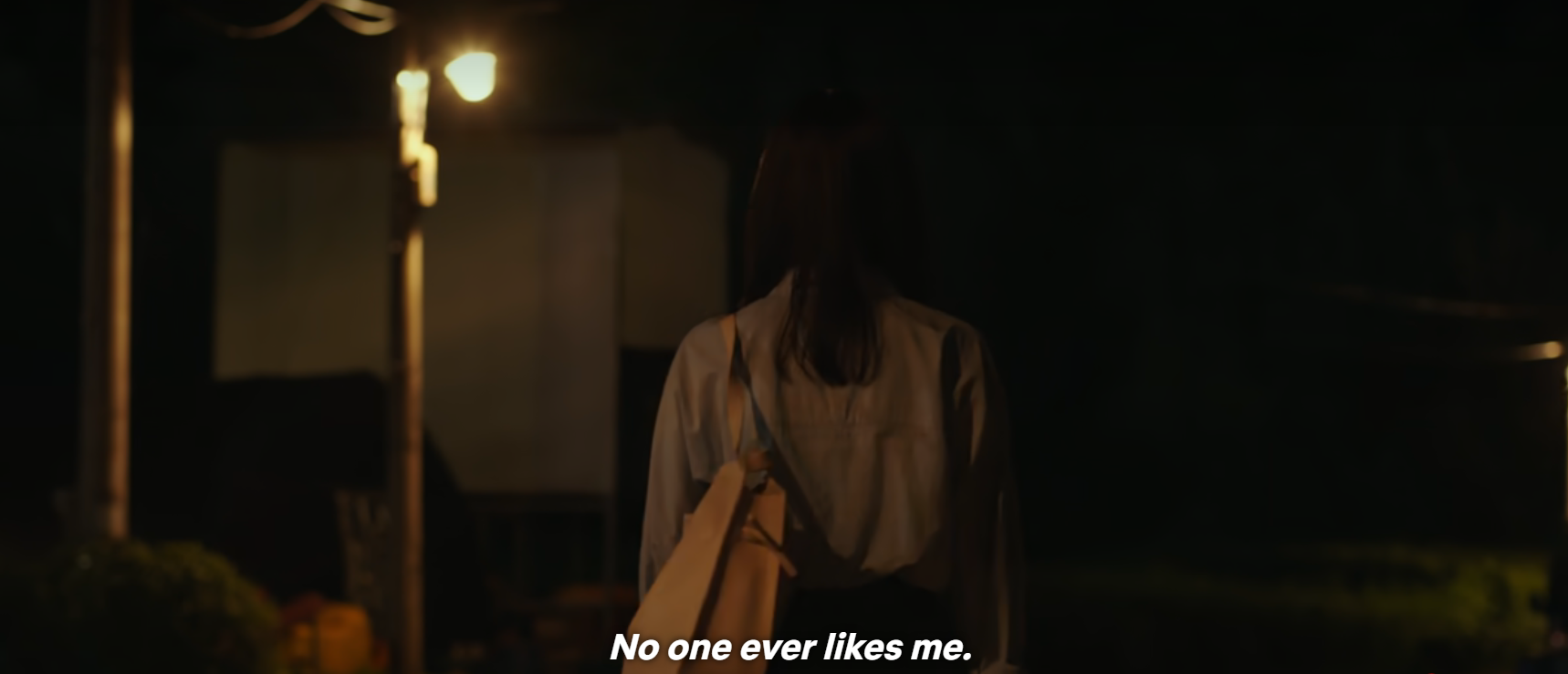
The story follows three siblings (Gi-jeong as the eldest daughter, Chang-hee as the second-oldest brother and Mi-jeong
as the youngest daughter) who all have to commute far to their workplaces in Seoul as well as Mr. Gu, the mysterious
man the siblings’ father employs. They each have their handful of troubles with work, love and the people in their lives.
As the cast expands, the side characters’ personal lives are also given attention and care.
It’s hard to convey how masterful the writing is. Every single moment on screen feels amazingly intentional and meaningful.
You’re drawn into their heavy orbit of life. Among the characters, there’s this curiosity/fascination/resentment/frustration
with how other people and themselves live their lives. They look at others and shake their shoulders and ask them desperately
if this is how they want to live their stupid life?? Are they sure?? Are they doing it right?? Because this character doesn't
think so, but they don't know the correct way to live either. It’s a question that permeates everything.
It’s endearing seeing the different ways characters come to cope. It could be Gi-jeong ranting in a bar, putting her foot in
her mouth and unintentionally offending the people next to her or it could be Chang-hee who rationalizes being stuck with terrible
people by stating it must be a sign that he isn’t a good person either because surely like attracts like or it could be Mi-jeong
who can’t muster up the courage to be angry at the assholes in her life, who finds it easier to imagine a hypothetical figure
who could see her in her wholeness or it could be Mr. Gu, drinking his life away quietly, ready for the world to end. There’s
a type of earnestness in these moments. Their struggle to live may not make them good people. It might make them more like shells
of people, but their effort is sincere as can be. They’re human in a way that hurts. Their insecurities, lack of self-worth and
fears brew and then strike and then brew again.
How My Liberation Notes captures the ways daily life wears people to the ground is excellent and that’s exactly what makes its
portrayal of change so interesting. Even the most oppressive of routines will naturally see change through factors outside your
control. At the same time, these changes can be active choices made on your part, regardless how well-planned or impulsive they
are. All is for better or worse. The characters come to ride on the good and bad that stem from these different circumstances.
There’s new and old conflicts to face, but it means something that they’re not static people. They can see others and be seen.
It’s not lost on viewers that the changes spurred on by the characters themselves are simply as a result of them putting their
love out there first.
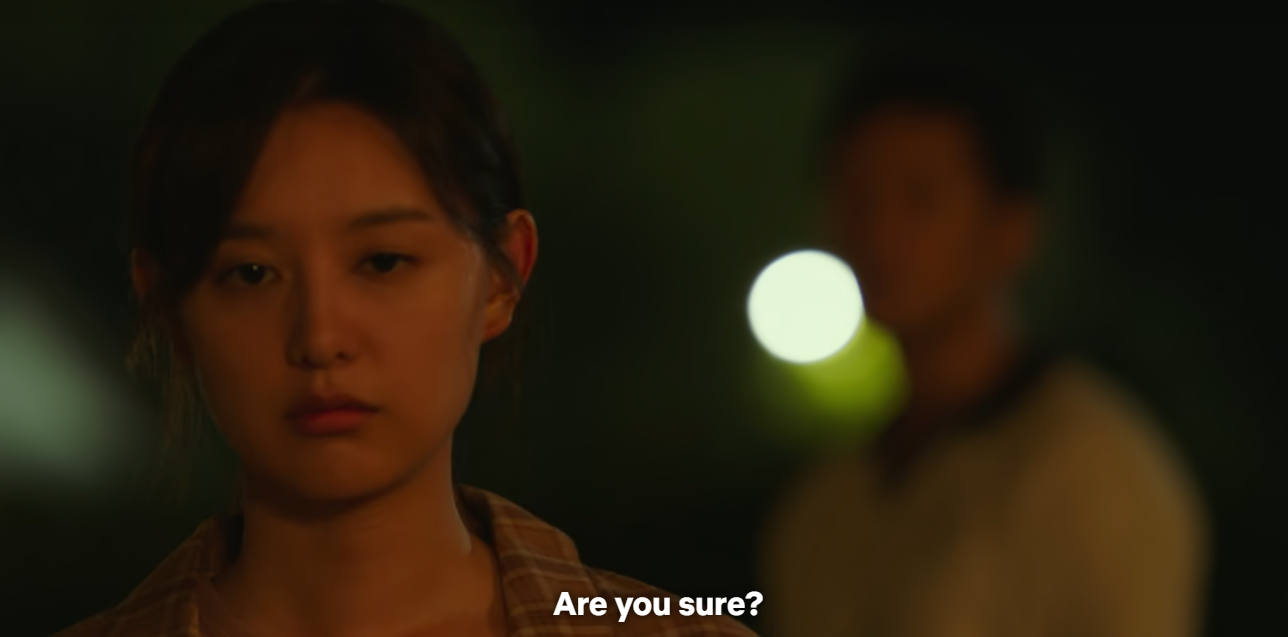
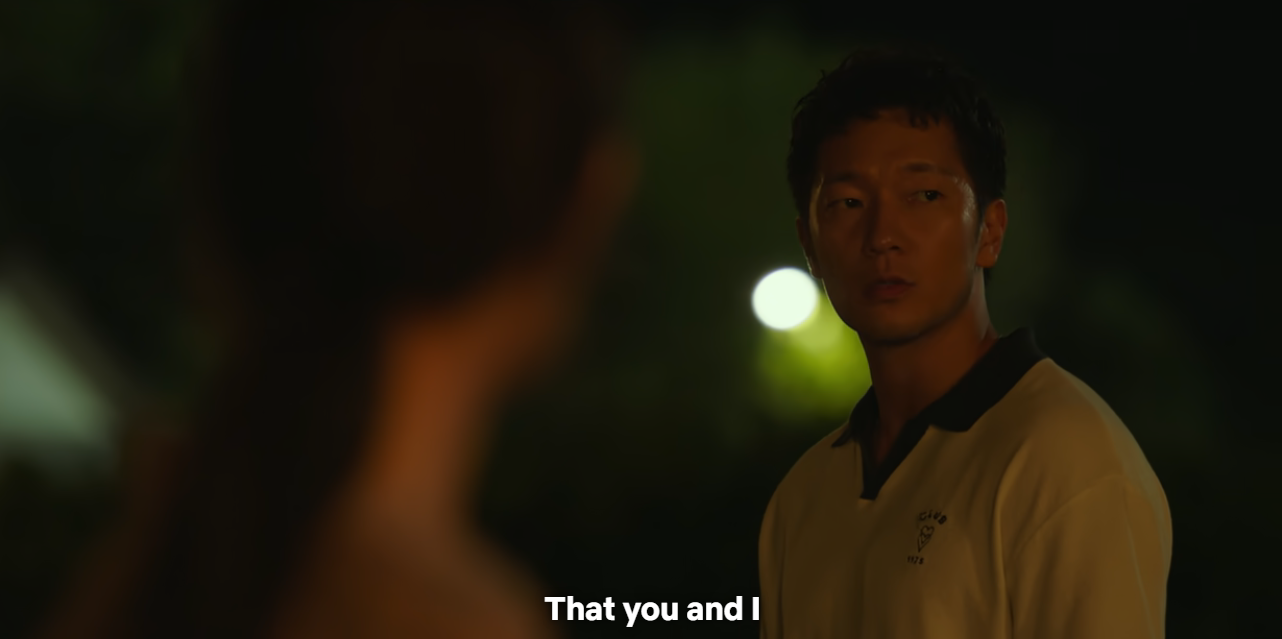
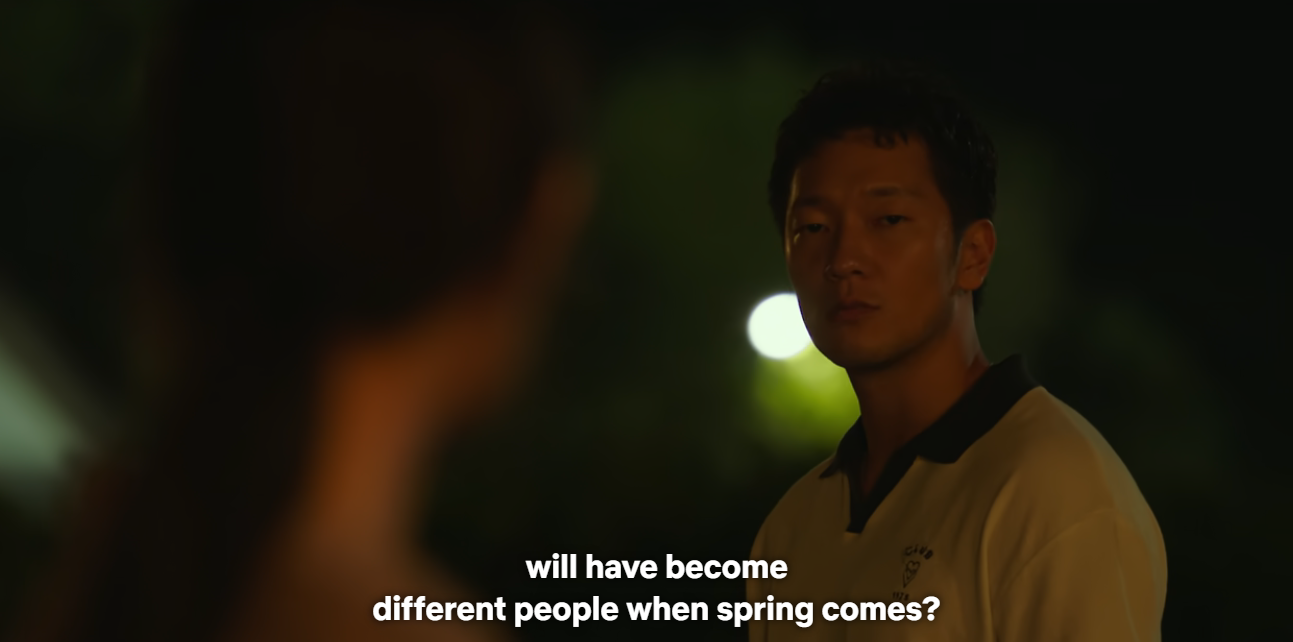
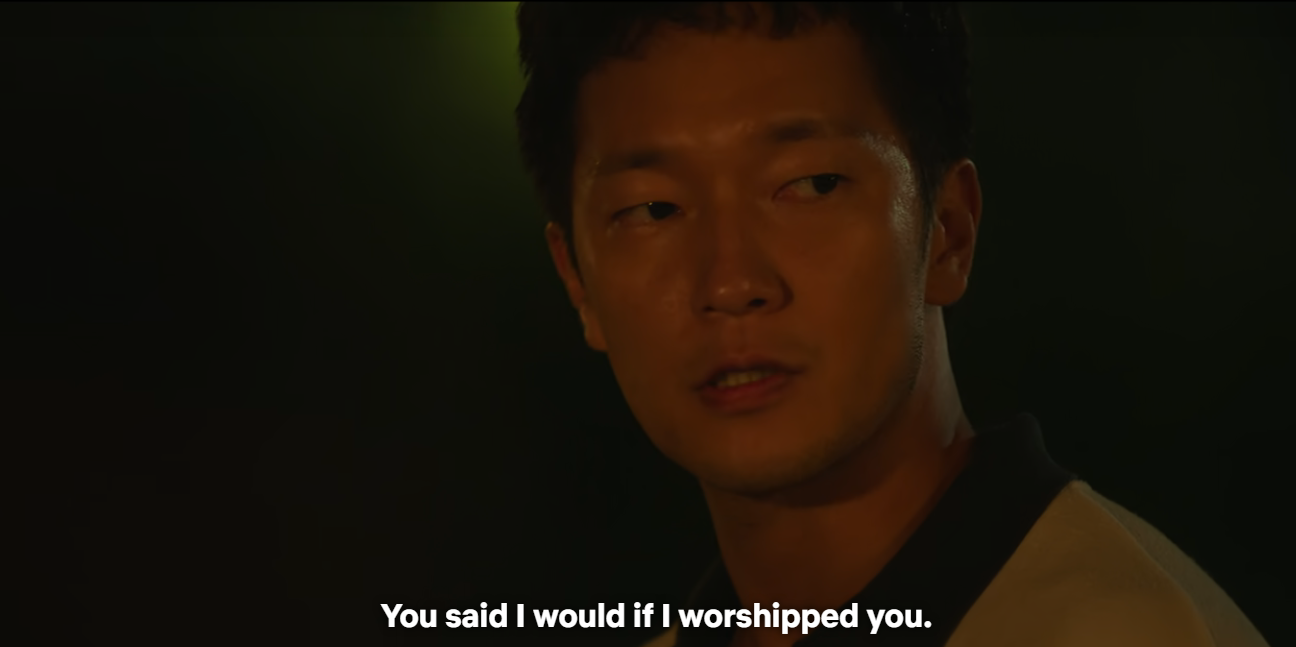
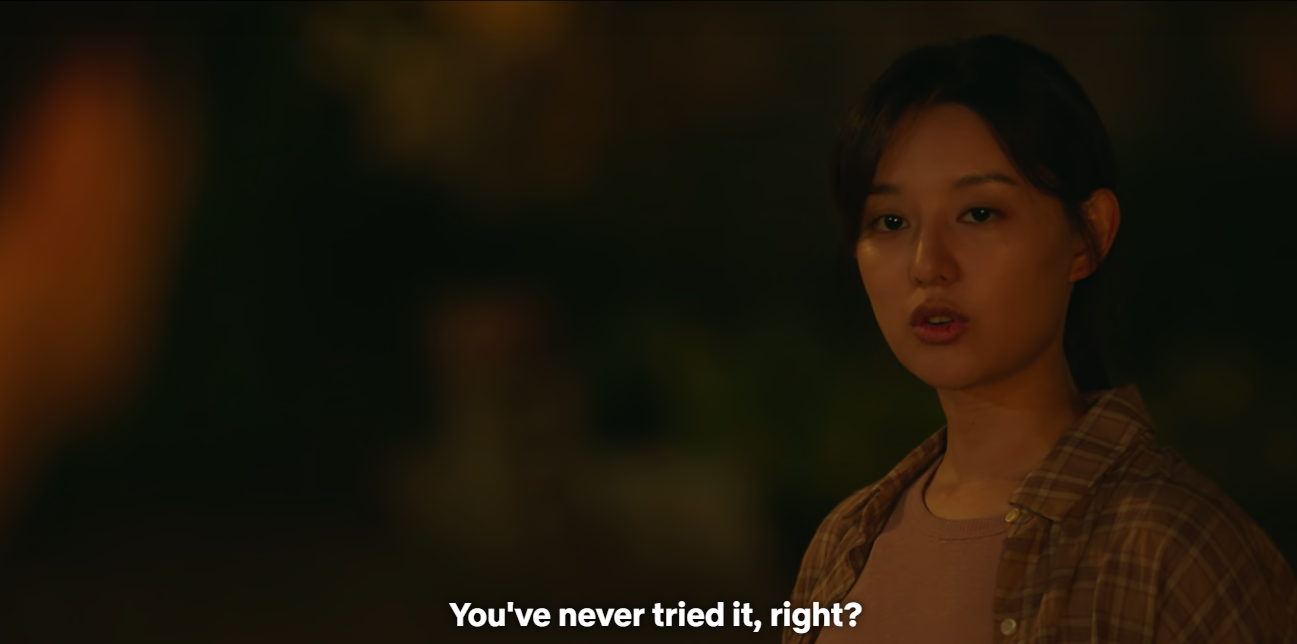
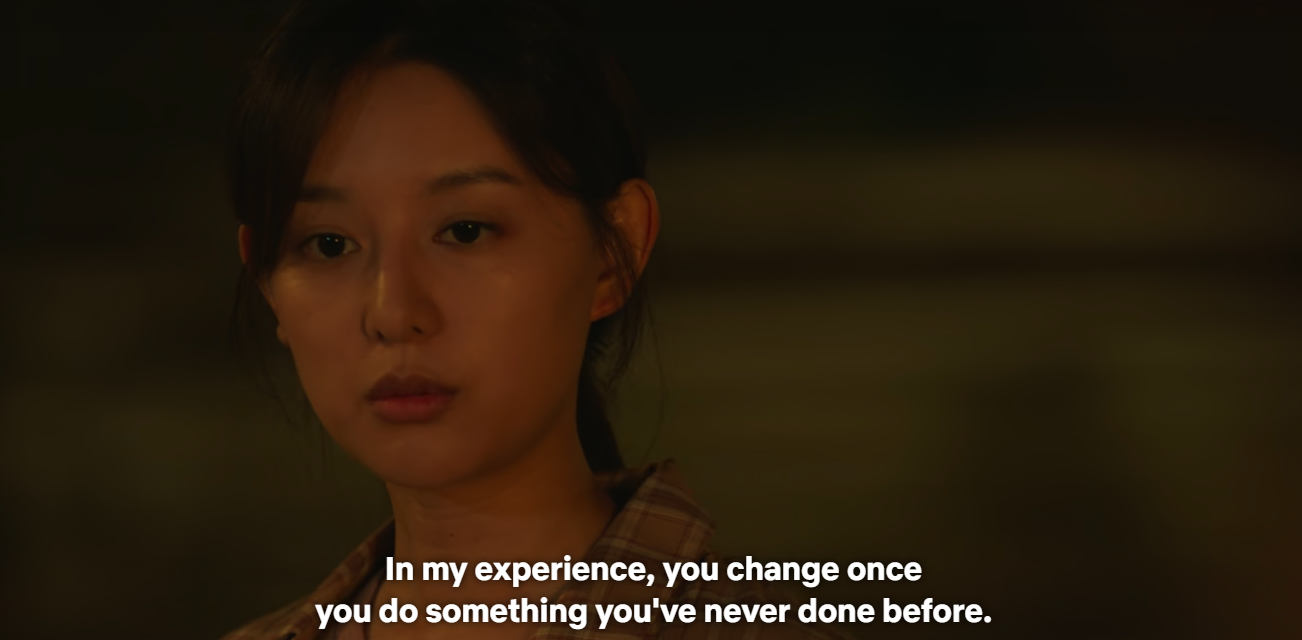
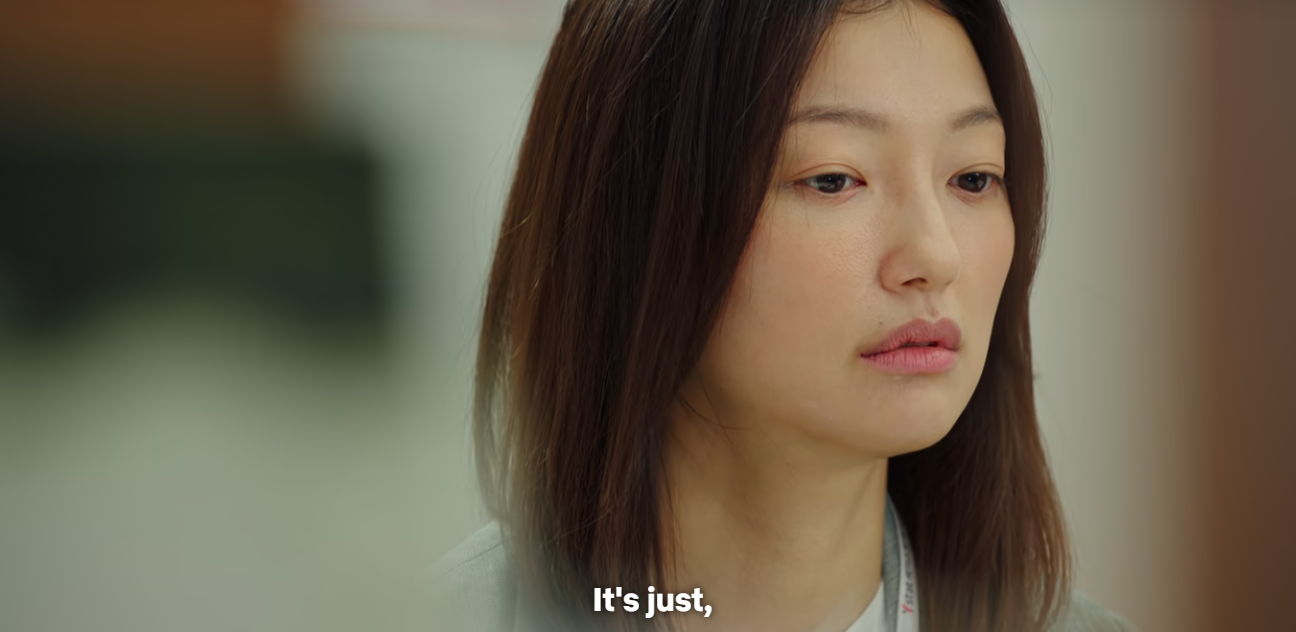
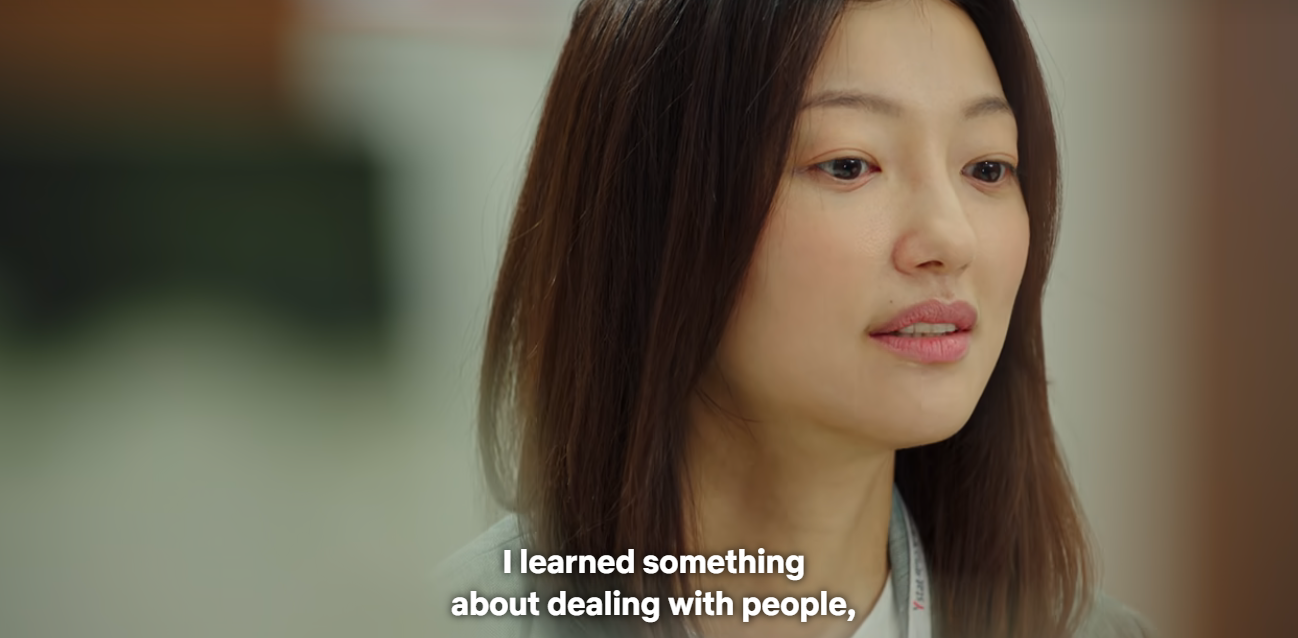
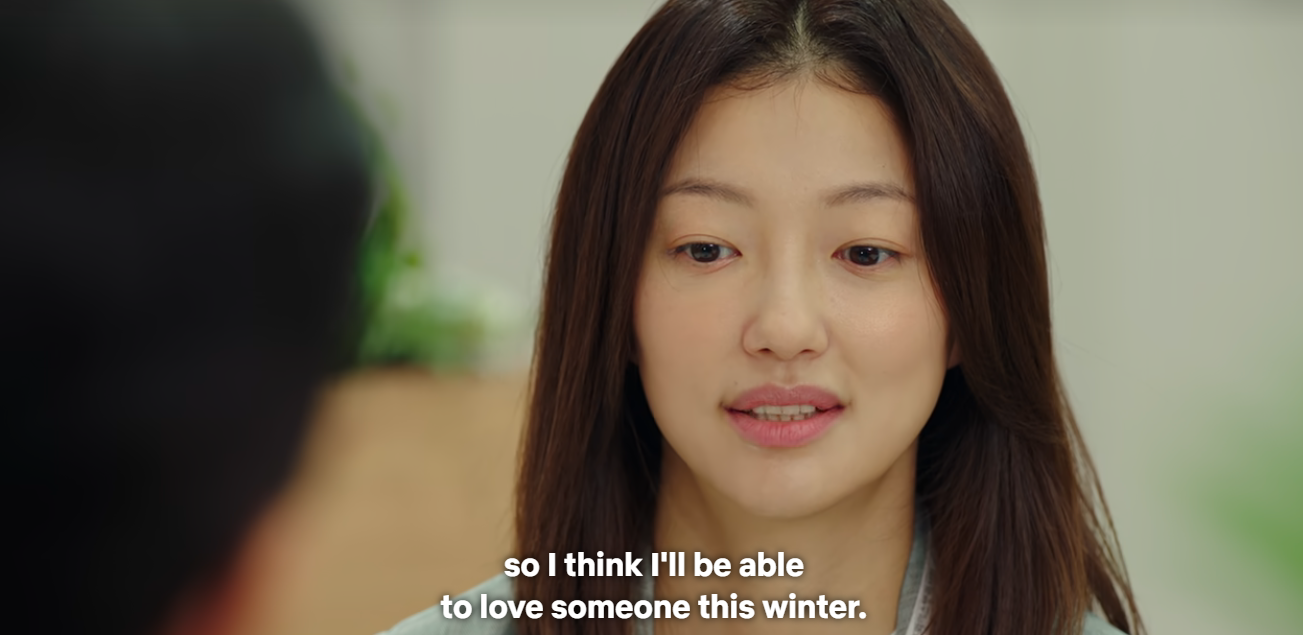
It’s so, so important that the characters struggle till the very end of the show with no indication that that will not be
true going forward. Just as bright moments will color characters’ lives randomly, so will the moments where the life is sucked
out of everything. How do you live? How do you liberate yourself? Steadily. Learn things about yourself and others slowly.
Carry on with no answers. Continue to barely survive. Restart the liberation club until it works.
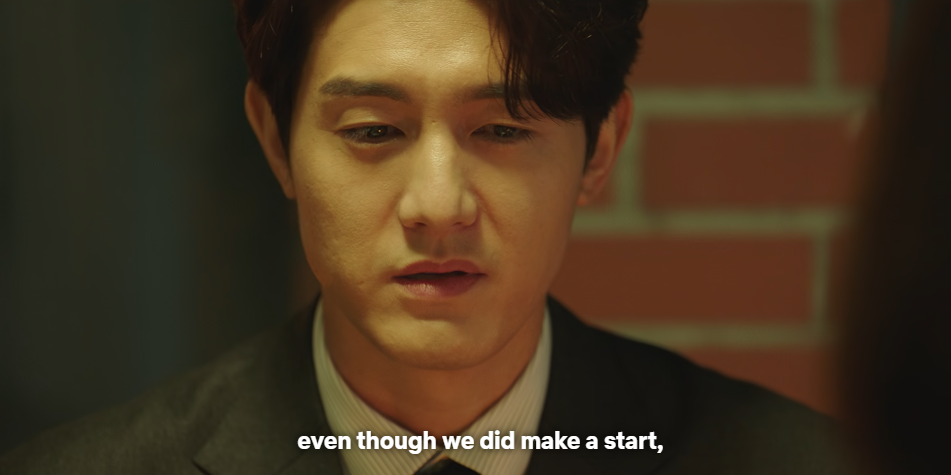
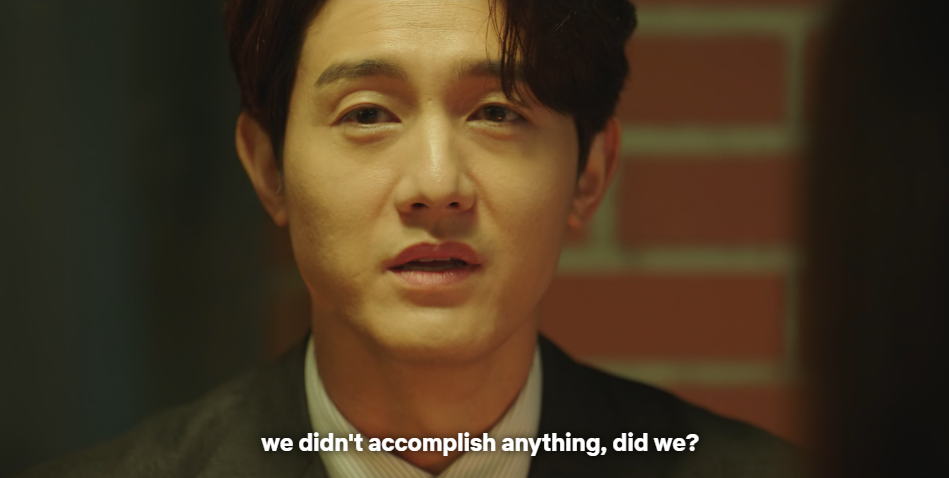
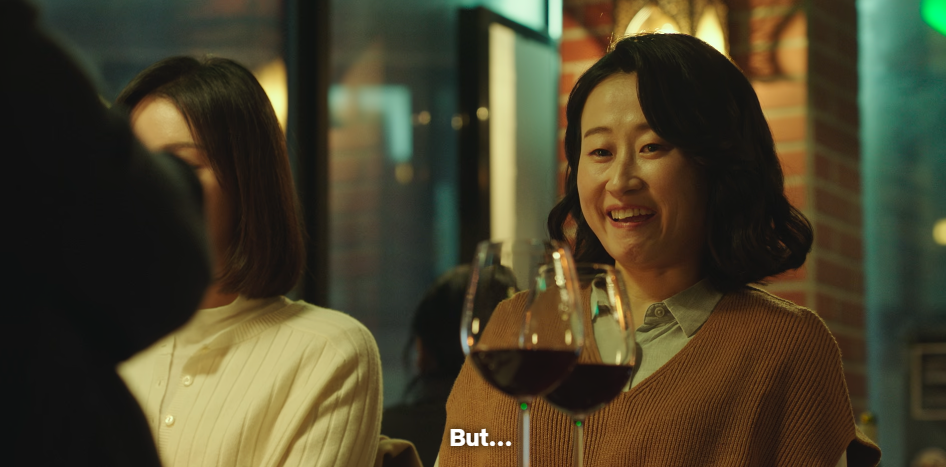
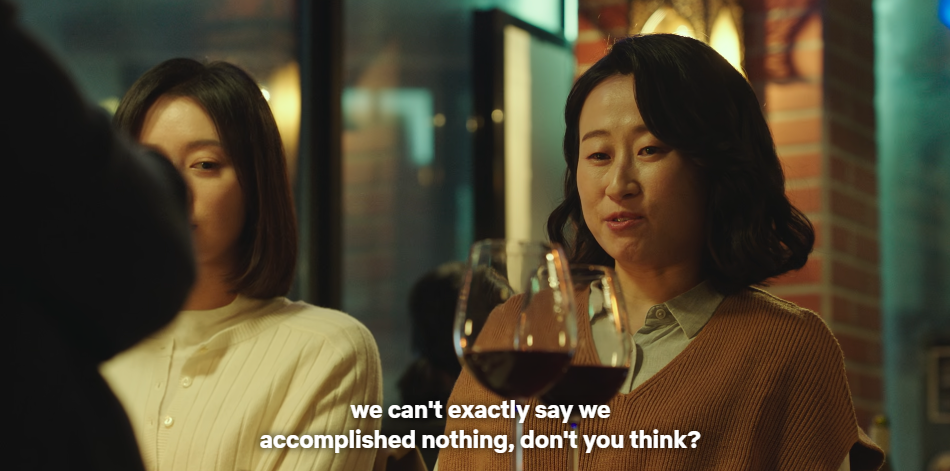
My Liberation Notes is so fundamental and it saved my life and it’s such a good slice of life and you should just take my word
for it and watch it. There’s so much more I could say about it as there’s so many lovely sentiments…Mi-jeong’s plea to be worshiped
(loved, seen, acknowledged) culminating in a relationship with Mr. Gu where they both keep each other alive in the hopes they can
change…the alienation experienced among normal people and the way they talk about worldly matters…Tae-hun discussing what it means
to raise children in the same world that leaves him feeling weak and as though he should have never been born at all…Chang-hee
desperately wanting forward momentum, but his character ultimately being about saying goodbyes and finding his true impact…It’s
all so, so good and there’s so much heart.
I could go on, but I think this is a good stopping point! If you have an interest in living, this show may be for you.
hell's paradise
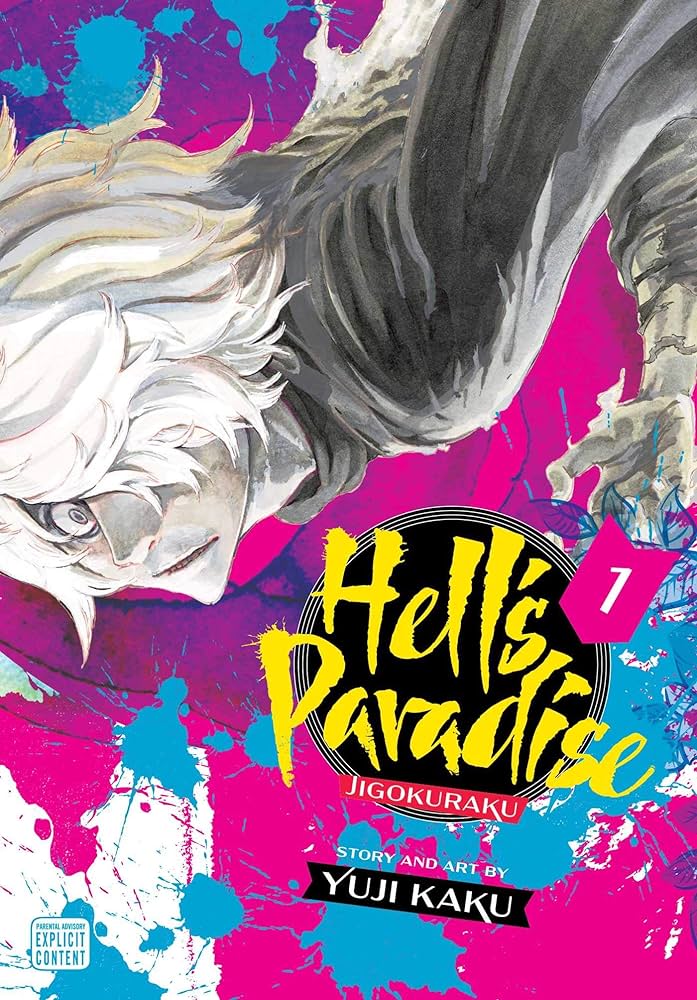
category: anime, manga
created by: Yuuji Kaku
After Gabimaru, a ruthless assassin, betrays his ninja village of Iwagakure, he is sentenced to death. His last
chance comes in the form of an offer--if he can travel to an ancient hidden island and retrieve the key to immortality
for the shogun, he may be pardoned of all his crimes. Only, he must face several obstacles along the way. He must
cooperate with his government-assigned executioner, Sagiri, and they must compete with other death row inmates vying
for the same prize in a beautiful and grotesque land, a heaven overlaid on hell.
A friend described Hell’s Paradise as a battle shounen for the slice of life likers and she couldn’t be more correct.
Hell’s Paradise is obviously a story about physically fighting for one’s life, but within these life and death situations
we explore the metaphorical fight for one’s life. That is, the right to one’s own humanity, to have and express emotions,
to a “normal life”. A normal life wherein the small motions of eating a good meal or taking your shoes off at the door
make us human. This aspect of being is one that is constantly stripped away and dictated by others, whether it’s due to
manipulative systems or societal understandings of strength, honor and morality. Characters regularly forget or actively
suppress the full extent of their personhood for these greater sakes. I love how punishing this continued struggle is
portrayed to be. This is a war fought before any of them stepped foot on this island and war they will continue to fight
long after. It might seem a little cartoonish (it’s an attitude I’ve seen in some circles online), but it…really isn’t,
the more time you sit with it. Does bottling up your feelings to get back into the pace of modern life or skipping the
satisfaction of a good breakfast to get to work on time not fall under this same sentiment? Isn’t devaluing parts of
ourselves a habit that dies hard? It runs deep.
It’s fascinating seeing the characters critically dissect the lines they have always lived their lives between (and some
are not so obviously oppressive structures! Some are as normalized as the air we breathe!), daring to see that there’s
something greater and a way to live life outside of all that. You can’t help root for them because their success is a
signal of something greater.
Gabimaru wakes up to these thoughts when Yui, his newlywed wife, attempts to shape their married life into something more
normal amidst the violence of Iwagakure. Gabimaru’s conviction to return alive in order to live a normal life with Yui in
turn inspires Sagiri. She supports his fight because it strengthens the resolve behind her own journey into what her own
strengths and values are. The strategic alliances made between criminals and executioners alike transform into intense and
sincere connections that leave them all more receptive to these ideas. People change and are changed by others! The power
system quite literally relies on characters finding mental and emotional balance within themselves, embracing every facet
of themselves.
The cast is so excellent too…so endearing and silly and they each bring a necessary angle and depth to the larger narrative.
They’re all different people. Some are innocent. Some are the worst people you know. These themes still apply to them because
they apply to everyone, regardless of their past and identity. It’s in no way a found family, but the bonds they make are
nothing short of precious and the experiences they shared will be something the characters carry on forever.
On a final note, the artstyle, humor, pacing and even the choice for antagonists also all contribute to the wonderful
experience that is this story. Peak fiction!!!

